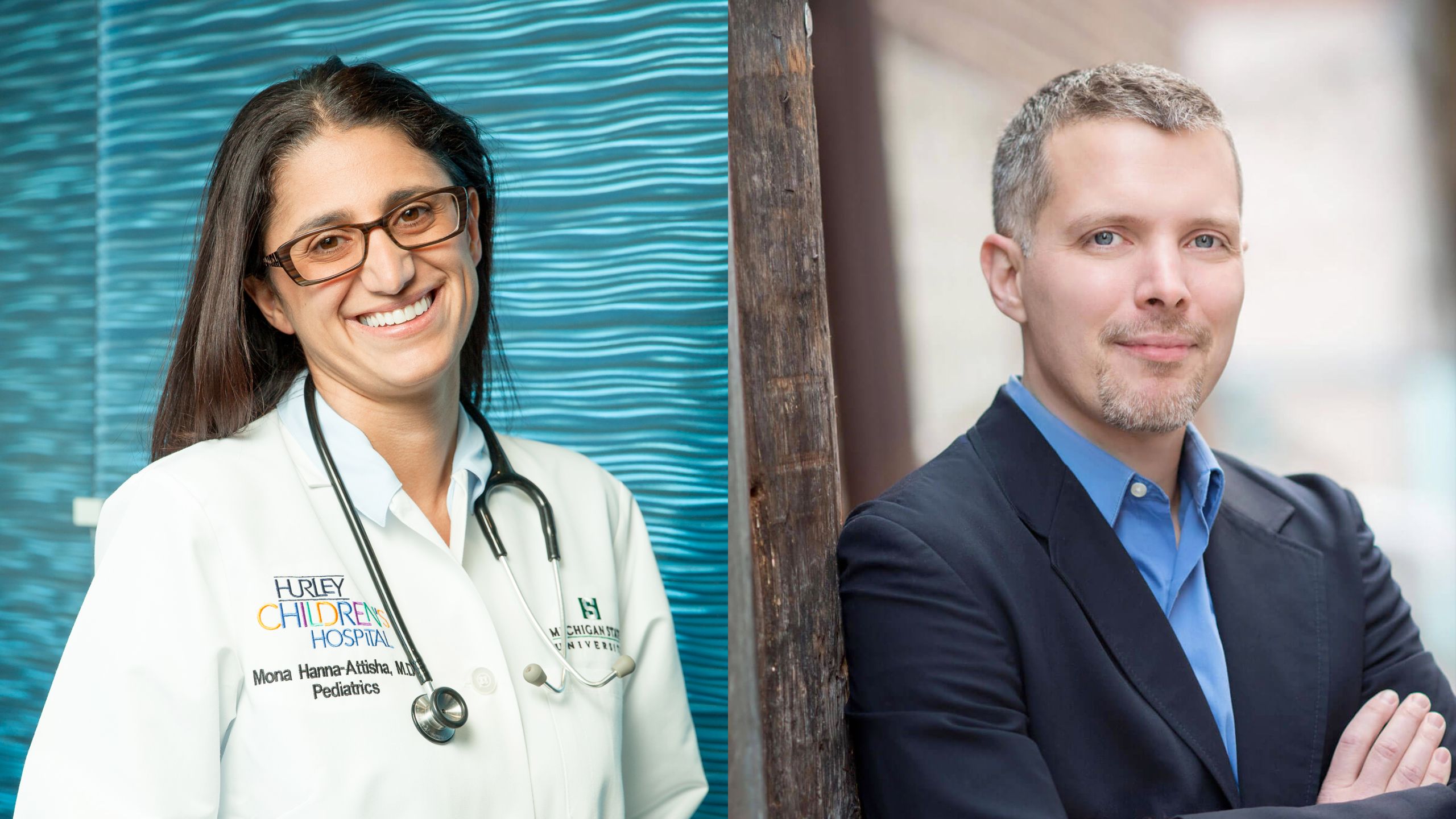While we’re taking Early Learning Nation Studio on the road less often during the pandemic, we’re offering recaps—Top Takeaways—from important conversations, town halls, webinars and virtual events from the Early Learning field. Visit our Early Learning Nation channel on YouTube for interviews with leaders from education, child development, business, politics and more.
On October 11, The Harvard University Center on the Developing Child hosted an exciting conversation examining how a child’s broader environment shapes early learning development, beginning before birth. Pediatrician, author and activist Dr. Mona Hanna-Attisha and Dr. Luke Shaefer, professor of Social Justice and Social Policy at the University of Michigan, share their playbook for a new cash allowance program out of Flint, Michigan, and how this new initiative can make a difference in reducing poverty and profound disparities across the United States. The discussion was facilitated by Lindsey Burghardt.
Here are our top 5 takeaways.
1. The physical environment influences child development. It is widely known and documented that the child-caregiver relationship is critically important, but it doesn’t exist in isolation. Burghardt emphasized that the environment that surrounds children, both built and natural, is shaped by human actions, “including very intentional decisions around policies that shape the environments where kids live. They’re not evenly or randomly distributed. They’re shaped by and deeply rooted in public policies and social history.”
👉 Pediatrician Mona Hanna-Attisha’s Vision of “What We Can Do Next”
“Pediatricians are the ultimate witnesses to failed social policies,” Dr. Hanna-Attisha said, “It’s this inaction in policy or certain actions that make our kids sick and implicate their entire life course.”
Citing the consequences of exposure to lead-laced water in Flint, she continued, “Like most environmental exposures, they often don’t show up acutely. We see their manifestation and impact years, if not decades, later.”
Many lifelong consequences, such as behavioral problems, cognition issues, high blood pressure, early dementia, gout and kidney disease, are linked to exposure to neurotoxins in early childhood and prenatally.
Dr. Hanna-Attisha writes about this topic at length in her book What the Eyes Don’t See (2019).
👉 How a Pediatrician Confronted a Public Health Crisis and Rocked a Nation
2. The onus is not on the individual. “We have to be mindful that the challenges that face us today did not arise out of thin air,” Dr. Shaefer said. “When we think about something like poverty, it is often a matter of compounded disadvantage.”
His newest published work brings health, income and social mobility into dialogue with each other, with a new index for poverty. The case of Flint is extreme, though its trajectory is not unlike many communities across the nation. “It is an emblematic story of what happens when you live in a place that has been chronically disinvested, that does not prioritize the health and development of our children,” Dr. Hanna-Attisha explained.
Practices like redlining and blockbusting made certain neighborhoods specific to African Americans. “Even before the water crisis, that made growing up in Flint toxic,” Dr. Hanna-Attisha said.
After that occurred, the address of a kid in Flint predicted whether or not they would drink poisoned water. “How can it be an individual’s fault when communities have been bifurcated and divided in these ways, not just for a decade, or a few decades, but well over a century?” Dr. Shaefer asked.
3. There’s a new prescription for hope, health and opportunity. To mitigate the water crisis, and promote the health and development of kids, Dr. Hanna-Attisha, Dr. Shaefer and families in Flint teamed up to create a first-of-its-kind city-wide initiative called Rx Kids.
“Starting in 2024, we will be prescribing every pregnant mom an unconditional, universal cash allowance in mid-pregnancy, and every baby an unconditional, universal monthly cash allowance from birth to twelve months of age.”
Philanthropic donations and a redirection of state funds from TANF (Temporary Assistance for Needy Families) fund the program. Their goal is to raise $55 million and to continue for five birth cohorts over five years.
4. There’s precedent for universal child payments. “The old cash welfare system that we had in the United States was a very stigmatized program,” Dr. Shaefer said, explaining its long history of invasiveness and structurally racist approach.
Following the global movement for child allowances, “The logic starts from a very different place,” he said. “Raising kids is expensive, and society has a reason to come alongside parents and support parents in that work. One way to do that that empowers families is to provide cash to pay the utility bill or to buy diapers or buy the crib.”
5. The results of cash allowances are promising. Research shows that by dispersing such universal payments, child poverty plummets and reports of child maltreatment and resulting out-of-home placements decline, along with food hardship, and parents’ mental health improves.
In addition to numerous health measures, the team will look for improved civic engagement and well-being outcomes. Rx Kids will officially launch on February 14, 2024, during Black History Month and on Frederick Douglas’ self-proclaimed birthday.
Dr. Hanna-Attisha shared her favorite quote, which guides her work, “It is easier to build strong children than to repair broken men.”

Mark Swartz
Mark Swartz writes about efforts to improve early care and education as well as developments in the U.S. care economy. He lives in Maryland.



